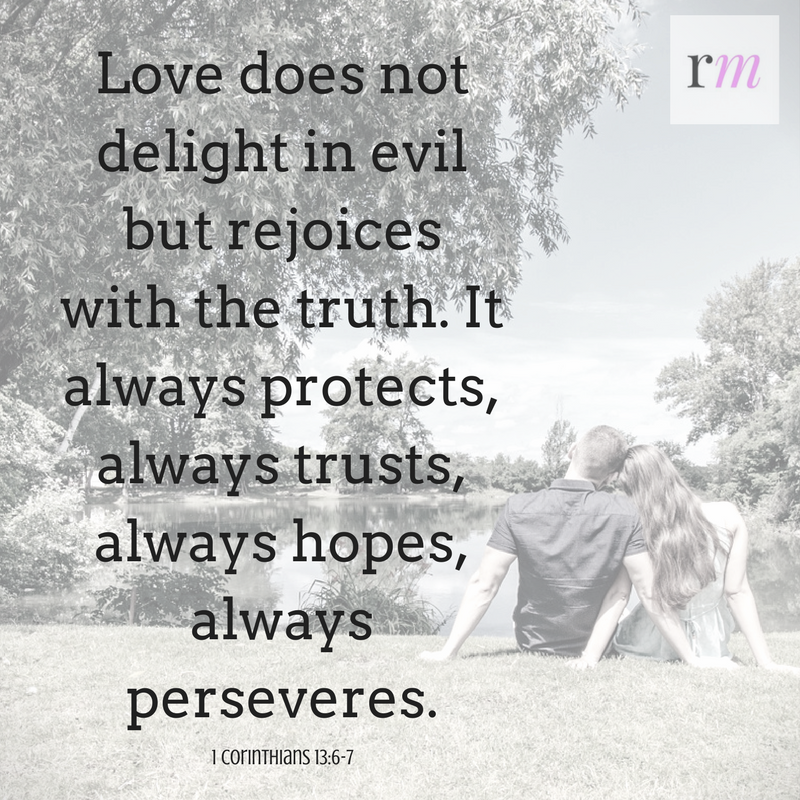As I write this, Father’s Day is winding down. It’s been an uneventful one for us, since we officially celebrated a week ago with my dad, and my three oldest kids are at their dad’s house. John’s oldest daughter is visiting, and the two of them are out driving around in her new car (a Schoonover family favorite that usually involves touring the neighborhoods for car lots, fishing spots, and houses one of us has lived in). I love Father’s Day, and this year especially, I’ve been contemplating how much the fathers in my life really matter to me.
Our “Dad’s an idiot” culture
I think fathers in our culture are undervalued. From what I see on TV, especially in commercials and on sitcoms, the stereotypical mom is organized, smart, capable, and involved. She’s the important parent; the one you go to when you need help; the one you take seriously. The stereotypical dad is lazy, incompetent, disengaged, and immature. Dad is a fool, the butt of jokes, the one kids go to when they want to get away with something that mom is too smart to fall for. Or, Dad is gone altogether, and Mom and kids are doing just fine without him. One of the biggest lies our culture tells moms is that we can do it all, and do it all by ourselves. Dads are a good source of income, perhaps, but in the words of the feminist movement, “a woman needs a man like a fish needs a bicycle.”
Real life, for me, has proven that this is absolutely untrue. I can’t do it all. In fact, there are many times when I can barely do ANY of it. Sure, I am organized, smart, capable, and involved. But I have a lot of flaws and shortcomings too. I have bad days, when I need help…sometimes lots and lots of it. I make bad decisions. I get lonely. I get tired. I get discouraged, crabby, lazy, impatient, and selfish.
I do need someone to do this parenting thing with me, and not just anyone; I need a husband. I need a dad for my kids.
Three Fathers
There are three fathers who have been instrumental in my development as a person and as a mom. Not everyone one is as blessed as I have been. Fathers can be abusive or neglectful. Husbands can be distant or unfaithful. Human beings are, well, human. We fail. But all of us have at least one father who never lets us down, and He’s the first father on my list: our heavenly father. God.
God
I want share one lesson about motherhood that I’ve learned from each of the fathers on my list, and that’s sort of difficult to narrow down with God. But what has really been on my mind lately is this thought:
You can’t base your value as a mother or as a human being on the successes or failures of your children.
One of my biggest struggles as a mom, especially as a stay-at-home mom, has been in separating my identity from that of my children. I am not them. They are not me. I am not the source of their achievements, their good behavior, their kindness. I am not the source of their failures, their disobedience, their selfishness.
I used to feel like their every act was a direct reflection on my ability as a mom. When Simon gave his sister a hug or shared a toy with his brother, it was because I was a great mom. When Esme got a good grade or earned yet another AR point, it was because I was great mom. Anything less than perfect, and I was filled with self-doubt and disappointment.
In my mind, my kids weren’t that different from robots. I was programming them, and if they didn’t do exactly what I thought they should, it was because of a flaw in my code. Perfect mommy code in = perfect kid behavior out.
Then, I started thinking about how God is my father – my first parent, the parent who created me, who loves me even more than my earthly dad, who’s there for me in every moment of every single day. And I started thinking about how even though God is perfect – absolutely incapable of anything but perfection – I am not. I have the best father in the universe, and yet, I still screw up. Is God responsible for my mistakes? Is it because of him that I yell at my kids, neglect my husband, burn dinner, forget band lessons, decide to put off cleaning the kitchen, say something hurtful to a friend? Does my badness make him doubt his goodness? Are my sins his fault? Maybe I needed to give my kids the room to make their own decisions, their own mistakes. Maybe I needed to stop taking credit for their achievements.
Maybe I needed to realize that God is their father too, and I’m not their end-all, be-all as far as parenting is concerned.
Maybe my role is not that of master, programmer, or creator, but that of a guide – here to build a foundation and get them pointed in the right direction, not to map out every single step or take it for them. I think that moms, in general, need to remember that our identity is not solely – or even primarily – that of mother. Who we are does not depend our kids – no matter how wonderfully or horribly we think they’re turning out.
My Dad
My dad and I are similar in a lot of ways. We look the same. We had the same major in college (English Lit.). We tend to be introverted and would rather be at home with a good book than out at a dinner party. But, as parents, we’re different. I’m a softie, tending more toward permissiveness. He’s strict, tending more toward authoritarianism. He’s very confident and decisive; I second- and triple-guess everything. I love hugging and kissing and snuggling; my dad is more comfortable with a pat on the back. I admire my dad, and I have always felt that I fall short of his example. I’m not disciplined enough, firm enough, consistent enough, decisive enough. I try to follow his advice, but I don’t usually get the results either of us had in mind. The older I’ve gotten, the more I’ve come to accept that I will never be able to be the kind of parent that my dad is. And that’s okay, because I have strengths of my own. But one piece of wisdom that I’ve gotten from my dad that I think can work with and through either of our parenting styles is this:
You have to parent with the long-term goal in mind. (If I were really in tune with my dad, I could turn this into some kind of football metaphor.)
And what is the long-term goal? I think he’d agree with me that the long-term goal is to prepare your kids to spend eternity in heaven with God.
All of my parenting choices, from discipline to diet, should be about their eternal happiness…which isn’t always going correspond to happiness in the moment. For them, OR for me.
One of the traps I fall into when I’m tired, distracted, or in a hurry, is to forget my long-term goals and just make whatever parenting choice is easier. It’s easier to just give in and buy the toy that Phil has been whining and crying over for 5 solid minutes in the checkout line. It’s easier to just make the bed myself than nag Simon to do it for the 11th time or come up with some clever consequence to discipline him with. It’s easier to buy the frozen pizza, to turn on the TV, to say “yes” to the video game, to let the chores slide for another day.
It takes planning and perseverance to figure out what kind of people I want these kids to grow into and what choices I need to make to help them get there.
My dad always seems to have the (energy? conviction? stamina? courage?) to be a long-term parent, and I am trying very hard to follow his example. I’ll discuss this in another post, but a big part of this kind of parenting is slowing down and taking the time to explain WHAT kind of virtue or character trait you want your child to demonstrate, WHY that’s important to you and to them, and HOW they can behave in a way that better reflects that particular virtue. You’re trying to teach values on the front end, rather than always focusing on yelling/nagging/correcting after the fact. It’s the kind of parenting that you can’t do when you’re always in a frantic rush to get somewhere or get something done, which is why it can be such a struggle for many of us.
My Husband
My husband, John, and I have a great marriage. Part of the reason is that we agree on all the issues that are important to us. Part of the reason is that we have complementary strengths and personalities. Part of it is hard work. But most of the reason is that he is the most patient and gentle human being on the planet. Whereas I have been known to actually lose my voice after a day of yelling at the kids, he almost never raises his voice. He’s never in a hurry, never flustered. He never has a to-do list and has never complained because the toilets haven’t been cleaned in two weeks or because it’s breakfast and we’re all out of milk and bread AGAIN. He is not consumed, as I am, by all the things he should be doing or could be doing – he just seems to enjoy each moment as it happens. He sits on the floor with the kids. He reads stories. He listens to stories, even the ones that start over five times and end up still not making any sense. He pushes them in the swings. He finds their favorite YouTube videos and watches along. He truly enjoys just being with the kids. I am always saying, “maybe later,” or “I can’t right now,” or “when I’m finished with…” and, as my kids all know from the moment I say it, “later” never happens. John just says yes and does it, regardless of what else he could or should be doing. Maybe it’s because he’s an older dad (he’s 55). Maybe it’s because he has three grown children and he knows how fleeting childhood is. Maybe it’s because all he ever wanted to do was raise a family. I don’t know why this comes so naturally for him and I have to struggle to focus on what really matters, but he is a daily inspiration to me.
When I start to feel like I’m the only one who ever does anything around here, or that no one ever appreciates any of the STUFF I’m GETTING DONE, I need to remind myself that what I get done around here – all the cleaning, cooking, shopping, weeding, etc. – is secondary. My true goal is to develop a relationship with my kids, so I can help them develop a relationship with God.
I hope that each of you has time this week to reflect on the fathers in your life and how they’ve helped shape you as a mother. I know that our human fathers and our husbands often fall short of what we need or want them to be, but I also know that it’s possible to learn from even the weakest and most flawed people in our lives. Maybe, like me, you’re blessed with men in your life who have much to offer in terms of guidance and support. Maybe you aren’t, and you can learn more by contemplating what the men in your life should have done but didn’t, or how God was there for you when your father or husband wasn’t. Either way, I encourage you to pay attention to the way our culture portrays men, especially men as fathers, and ask yourself how that might be affecting your perception of the men in your life.



